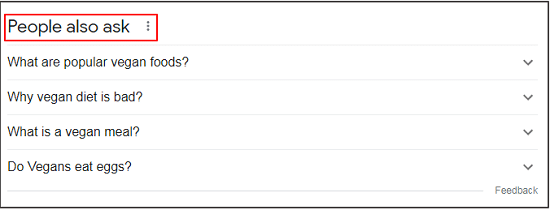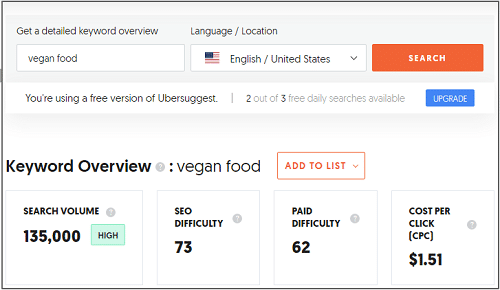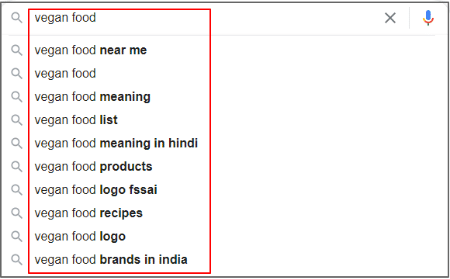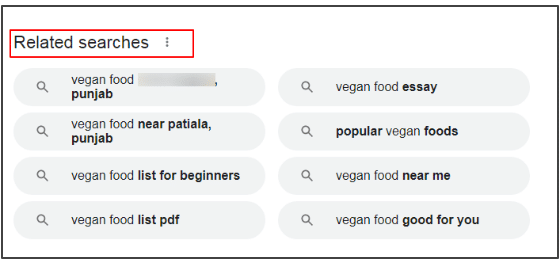Table Of Contents
What are Long-Tail Keywords?
Before getting deep into the topic of long-tail keywords, you firstly need to know what is a keyword.
- Short-Tail Keywords: have one or two words as body; highly competitive; high search traffic; example- “food recipes“.
- Medium-Tail Keywords: have 3 words as body; medium competition; average search traffic; example- “healthy food recipes“.
- Long-Tail Keywords: have 3+ words as body; low competition; low search traffic; example- “healthy food recipes for reducing fat“.
- Smart T.V
- Best smart T.V
- Buy smart T.V
- Sony smart tv under 15k
- Buy Sony LED with price 10k to 15k
- Best Sony smart tv under 15000


Why Are Long-Tail Keywords Important?
1. Get Organic Traffic To Your Blog
2. Works Great With New Trend Of Voice Search
3. Long-Tail Keywords Have High Conversion Rates
If your posts are of commercial intent and are sales-driven, long-tail keywords could help you get more income through sales.
As the users who are searching for long-tail words in search engines are more specific to their needs and have a strong thought of purchasing the product, which they are searching for.
From the previous example of “Sony smart tv,” it has been clear that a user is more probably to make a purchase when he searches for a long-tail keyword.
Because when we searched for ” buy Sony smart tv under 15k“, Google got to know that a user wants to buy a sony tv and its price should be under 15000, and then it showed the desired results.
4. Long-Tail Keywords Have Double Effect On SEO
Long-Tail keywords can also help you rank for short-tail keywords.
If you pay attention, long-tail words always include seed keywords in them.
So, it helps you achieve two goals at a time.
Let’s open the Semrush keyword research tool and enter “on-page SEO” as your seed keyword. Now, go to keyword variations. It will show you a list of long-tail words and all of them contain headwords in them as in the image.
5. Win Over Your Competition
Do you know?
Around 70 million posts are made daily on WordPress alone.
So, there’s huge competition in every niche. And it’s almost impossible for new and small blogs to outrank high authority players with the same old ways.
Because they are using those techniques and tricks at a really advanced level.
Most of the time, those big blogs don’t waste their time on ranking for long-tail keywords due to low search volume.
And that’s a plus point for you. It can provide you with a simple way to showcase your website in the SERPs.
Pro Tip– You can also rank your old posts by using long-tail keywords.
Find your old posts from Google Search Console which are ranking in between the Search pages like 20th to 30th page.
Now find long-tail words related to that topic and assist those words within your post like subheadings and wherever it looks genuine. It’s likely to get you positive results.
How To Find Long-Tail Keywords For Free
There are many tools and methods to find long-tail keywords for free.
1. Ubersuggest’s Free Keyword Tool
Ubersuggest is a free keyword research tool by Neil Patel. However, its paid version is also available but the free version provides you good starter access.
Firstly head over to Ubersuggest and enter your keyword like “vegan food” in the field, as in the below image.
It will show you an overview of your seed keyword. Then click on the option of keyword ideas under keywords appearing on the left of the screen. It will display a list of all the keyword suggestions by default along with search volume, CPC, and search difficulty.
For getting into advanced research, put the filters of volume, SEO difficulty, CPC, and additional keywords filters which help in excluding or including a specific keyword.
In this example, we will set search volume for a minimum of 500 and search difficulty to a maximum of 17. While setting up the search volume there are two boxes “from” and “to”.
So, according to the example, we will fill minimum search volume i.e. 500 in “from” and the “to” box will be blank. In keyword difficulty, we will keep the “from” column empty and add the maximum limit in the “to” column.
This will show you all the keyword ideas for your head term within your assigned perimeters as follows
You can also change keywords in relation to questions, comparisons, prepositions, and more which further helps in finding highly specific and low competition keywords for your posts.
2. Google Autocomplete
Google Autocomplete is a feature of Google that provides descriptions for your search term.
When you are typing in a search term on Google, it keeps on showing further related predictions of your seed keyword until you hit the search. It’s a very useful feature of Google to find long-tail keywords even without using any keyword tool.
As in the above image, when we entered “vegan food” into the search box, it showed a set of long-tail keywords which could be used in posts for ranking your blog. One more thing, the keywords Google autocomplete provides, are popular to the search query.
It’s the best method to find long-tail words for your post as the keyword suggestions come from Google itself.
3. Google Related Search
When we search Google for a particular keyword, it shows a variety of results for your query.
Along with that, at the end of the page, it also shows a set of related search queries which can be a good addition to your keyword list.
Bonus Tip – You can add related search keywords In your posts to directly get traffic when someone clicks on the specific query.
As Google also gives a great focus on showing results based on searchers’ intent, it also helps you to know the searcher’s intent behind their query so that you can create your quality content around that.
4. Quora
Quora is the most popular Q&A site right now on the web.
Have you ever thought that you can also use it to know about trending topics for a particular niche?
You can find trending questions and long-tail keywords by following the spaces related to your niche. For the keyword vegan food, one can join many spaces like vegan food recipes, healthy vegan foods, Indian vegetarian, and more.
Here’s one more way to dig deeper.
When you open a question in Quora it shows a variety of related questions which can be used as long-tail keywords in your posts.
This way you can also create powerful backlinks for your blog. The questions you are using on Quora as post keywords, save them to answer later.
So, after you publish your post on the blog, get back to Quora and answer those questions with a link to your post. So, it is a win-win situation. It could be very helpful as Quora have a domain ranking of 93, which is great.
5. Answer The Public

6. Google’s People Also Ask










Really helpful content.
Solved most of my doubts about keyword research and ranking on long-tail keywords.